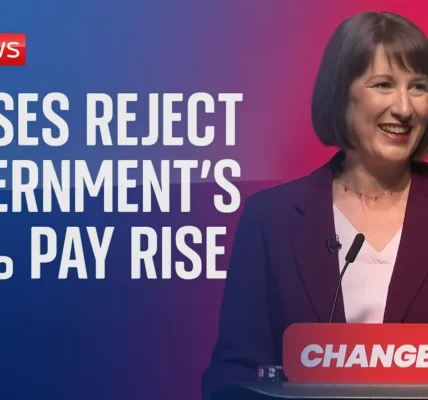We Need to Talk About Social Care

In this article, we delve into the complexities of social care in England, exploring its definition, funding challenges, and the personal experiences of those affected. As the political landscape shifts, the need for reform in social care remains critical, yet often overlooked.
Introduction to Social Care
Social care encompasses all forms of personal care and practical assistance provided to individuals requiring additional support due to physical or mental health conditions. Unlike primary health care, which includes treatments from general practitioners (GPs) and hospitals, social care is largely a devolved responsibility managed locally. This article will focus specifically on the social care situation in England, highlighting the significant funding shortfalls and the personal stories that underline the urgent need for reform.
The Current State of Social Care
The social care sector in England is grappling with severe underfunding and staffing shortages, compounded by the impacts of the COVID-19 pandemic. Many individuals and families find themselves in dire financial situations, often depleting their life savings or selling their homes to afford necessary care.
Statistics on Social Care Needs
- 4 out of 5 people will need some form of social care in their lifetime.
- The average cost of care can exceed £30,000 annually.
- Over 1.5 million people in England are currently receiving social care services.
Funding Challenges
The funding model for social care is complex, often leaving individuals to pay out-of-pocket if their assets exceed a certain threshold. Local authorities are responsible for funding care, but many are overwhelmed and unable to provide adequate support.
Personal Stories: Norman and Ros Phillips
The plight of Norman and Ros Phillips illustrates the real-life implications of the shortcomings in the social care system. Married for over 50 years, they have faced significant challenges as Ros battles multiple sclerosis and dementia.
Struggles with Care
Initially, Norman was able to manage care for Ros while working, but as her condition deteriorated, he had to leave his job to become her full-time caregiver. This transition was not only emotionally taxing but also financially devastating, leading them to sell their home.
Impact of Financial Strain
Norman expressed frustration with the system, noting that despite assurances that individuals would not have to sell their homes, they found themselves in that very situation. Their experience underscores the broader issue of inadequate support for unpaid family caregivers.
The Intersection of Social Care and the NHS
Social care and the National Health Service (NHS) are intertwined, with many individuals relying on both systems for comprehensive support. However, the lack of cohesive planning often leads to inefficiencies and increased costs.
Case Study: Hospital Admissions
Norman and Ros’s experience highlights the challenges faced when social care is lacking. Ros had multiple hospital admissions, which could have been avoided with better home care support. This is a common scenario where patients become “bed blockers,” unable to be discharged due to the absence of adequate social care.
Financial Implications
The financial burden of hospital stays and emergency services can escalate quickly. According to estimates, nearly 14,000 patients per day in England are fit for discharge but remain in hospitals due to a lack of available social care.
Political Perspectives and Proposals
Despite the pressing need for reform, social care has not been a focal point in political discourse during recent elections. Both major parties have offered limited proposals, often avoiding the subject due to its complexity and the potential political backlash.
Historical Context of Care Reform
- In 2011, Andrew Dilnot proposed a care cap to limit individual contributions to social care costs.
- Legislative attempts have been shelved multiple times, primarily due to financial constraints.
- Recent election manifestos have shown minimal commitment to addressing social care needs.
Future Outlook
With the upcoming elections, there is hope that the political landscape may shift, allowing for a more robust discussion on social care reform. However, historical patterns suggest that without significant public pressure, this issue may continue to be sidelined.
Conclusion
The social care crisis in England requires urgent attention and reform. The experiences of individuals like Norman and Ros Phillips shed light on the systemic failures and the profound impact on families. As we move forward, it is essential for politicians to engage seriously with the challenges of social care, ensuring that adequate resources and support systems are in place. We all have a stake in this issue, as the likelihood of needing social care is high for the majority of us. It is time to advocate for change and prioritize the dignity and care of those who need it most.
To explore more about social care and related topics, check out our articles on Funding Challenges in Social Care and The Role of Unpaid Caregivers.
“`




